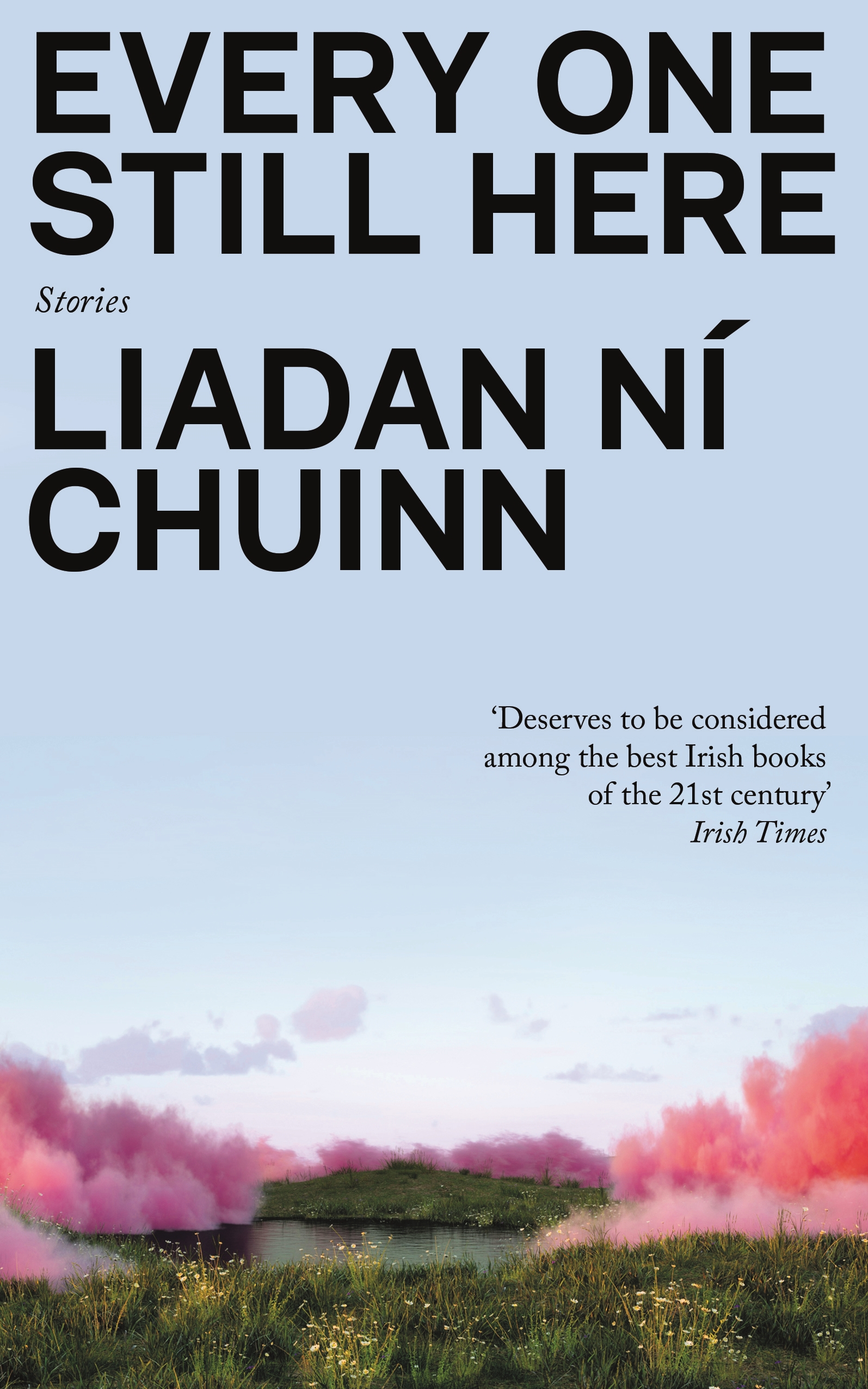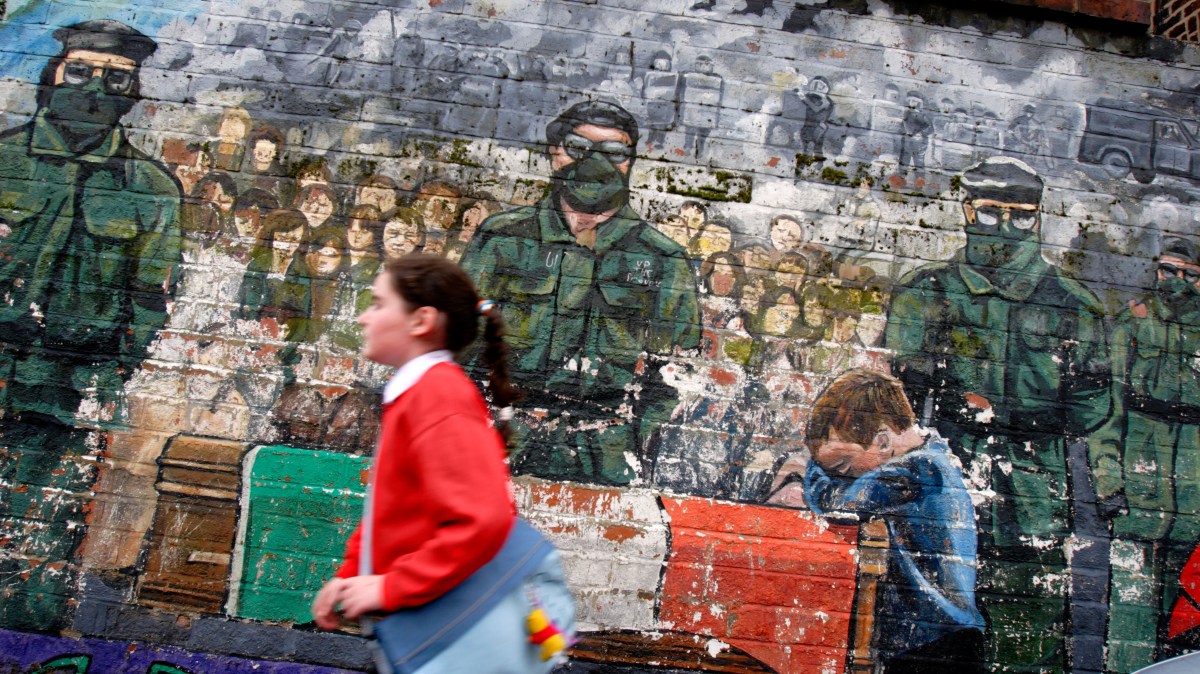The generation of people born in Northern Ireland in the 1990s are known, with varying degrees of affection, as “ceasefire babies”. They are united by being too young to remember the Troubles — but they have got their own troubles to contend with. Suicide rates in Northern Ireland have jumped since the conflict ended. (In fact, 3,709 people killed themselves in the 16 years after the Good Friday agreement, compared with 3,600 people who were killed during the 30 years of fighting.)
And in the absence of an armed struggle, there can be a kind of identity vacuum: if your parents fought for what they believed was right, are you supposed to just live an ordinary life — and be grateful for it? The rap group Kneecap have recently presented one solution to this problem: to take the anger of their forebears and reinvent it for a new generation. This astonishing short story collection represents another: to process those feelings of anger, disappointment and rootlessness through fiction.

The debut author Liadan Ní Chuinn is a ceasefire baby, born in 1998. Elusive and publicity-shy, their name is a pseudonym, they haven’t revealed their gender and there are no pictures of them available — in other words, they are a nightmare for their publisher . Thankfully for Granta, though, these six stories don’t need any biographical scaffolding — they stand strong on their own, exploring themes of inherited trauma, yes, but also illness, fertility, parenthood and love.
The opening tale, We All Go, follows Jackie, a young man haunted by an event that happened a few days before his birth: when his parents were hijacked at a paramilitary checkpoint. Jackie’s father, Michael, hurried out of the car, but his heavily pregnant mother, Paula, struggled to unbuckle her seat belt. The hijackers smashed her window and when she gave birth her face was still covered in tiny cuts. Jackie worries that his mother associates him with the trauma. “I feel it in things,” he says, “as though it’s not over.”
Nothing is over for Jackie. His father died when he was 12, after a long illness, and he can’t stop thinking about it. “Flesh melted off Michael Madigan’s wrists and hands and fingers until his wedding band couldn’t even stay on his finger.” (Illness is perhaps where Ní Chuinn is at their most powerful: characters in these stories suffer in excruciating detail.) Jackie’s desire to excavate the past extends to asking his aunt about how the British government’s internment of Michael’s father and brother in the 1970s affected the family, with scant results, and even to studying anatomy at university. If only he could dissect his life and place his problems in the correct metal bowl.
There is humour amid all this pain, though: Ní Chuinn has a real talent for capturing a character in a single detail. In Novena, for instance, we are treated to the cringeworthy Instagram posts of a young coffee entrepreneur (“Living la vida mocha,” reads one) and the rather literal perspective on prayer of a character’s grandmother (“Said special prayer,” reads a typical text message. “You should feel it kick in”).
• What we’re reading this week — by the Times books team
Elsewhere, the humour sits somewhere between joke and tragedy. In Russia, the strongest story, a young man goes to a psychic in search of clarity about his sister, whom he hasn’t seen in years (they were both adopted from Russia as infants). Meanwhile, the museum he works for is beleaguered by protesters who leave funeral flowers and angry messages (“THIS IS A DEAD BABY” or “LET THEM REST”) next to Egyptian mummies and bog bodies. Could his sister be behind the protests? And where is she anyway? The psychic is less than helpful. “I don’t do missing people, mate. I should have said that at the start.”
Four of these stories look at buried trauma in slightly oblique ways, reminiscent of the icy, controlled anger of Seamus Heaney’s North. That 1975 poetry collection perhaps marked the high point of Troubles literature, but writers working after the ceasefire (from both unionist and nationalist backgrounds) have developed new forms of expression. Look at Anna Burns’s Booker-winning Milkman (2018), for instance, which used language in constantly surprising ways. Or Michael Hughes’s Country (2018), which saw the conflict as a Homeric epic. Louise Kennedy’s Trespasses (2022) put heartbreak centre stage, while Wendy Erskine’s writing, such as her recent novel The Benefactors, might be called post-Troubles, instead focusing on new forms of division in Northern Ireland.
• Read more book reviews and interviews — and see what’s top of the Sunday Times Bestsellers List
Where does Ní Chuinn fit in this line-up? Despite their birth being literally post-Troubles, their writing is most certainly not. Every One Still Here is bookended by tales that burn with white-hot rage. Daisy Hill, the final story, is about an argument between two ceasefire babies, Shane and Rowan. Shane just wants to move on from the conflict. “You weren’t there, you remember f*** all … It happened, two sides, either side, both, it happened, it stopped.” But Rowan disagrees. “It’s not both sides, it’s not either side, it’s this huge f***ing army, it’s this huge f***ing state, this government that does whatever it wants, that just, that, they can kill us, and kill us.”
The story concludes with a long, detailed list of civilians killed by British soldiers during the Troubles. The final line is a ringing accusation: “This is the truth: nobody is ever charged.” Ní Chuinn’s stories resist the easy resolutions and neat twists that often characterise short-form writing and rely instead on the strength of their mood. The writing here is stark, unflinching, bald. It feels genuinely new. I get the feeling that Ní Chuinn would hate the term “voice of a generation”, but it may be foisted on them nonetheless — and with good reason.
Every One Still Here by Liadan Ní Chuinn (Granta £14.99 pp160). To order a copy go to timesbookshop.co.uk. Free UK standard P&P on orders over £25. Special discount available for Times+ members
